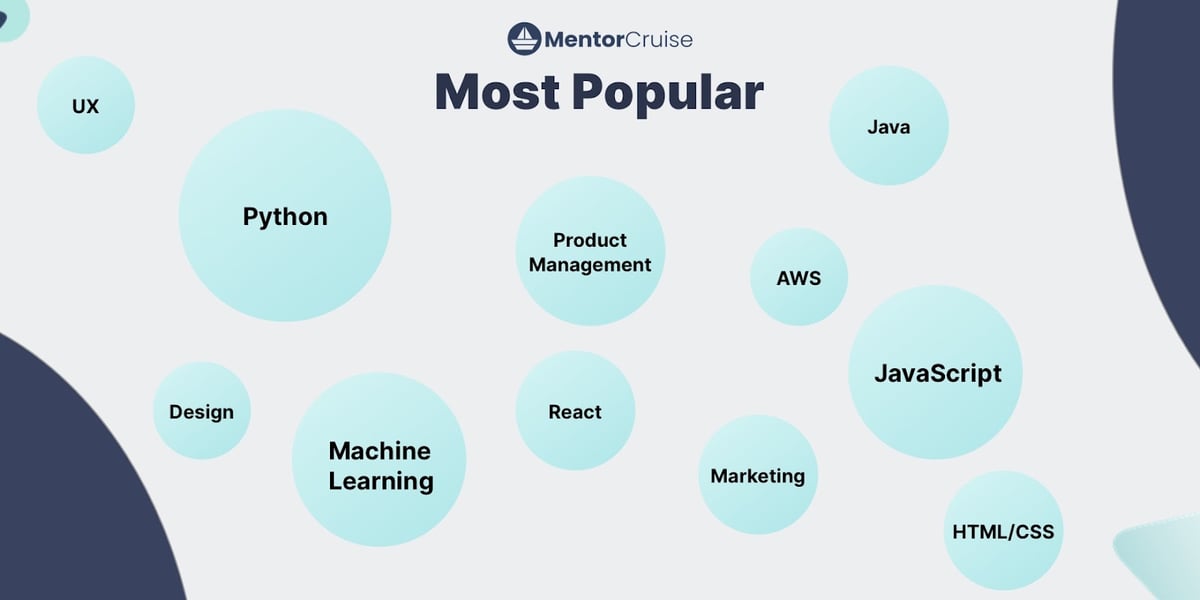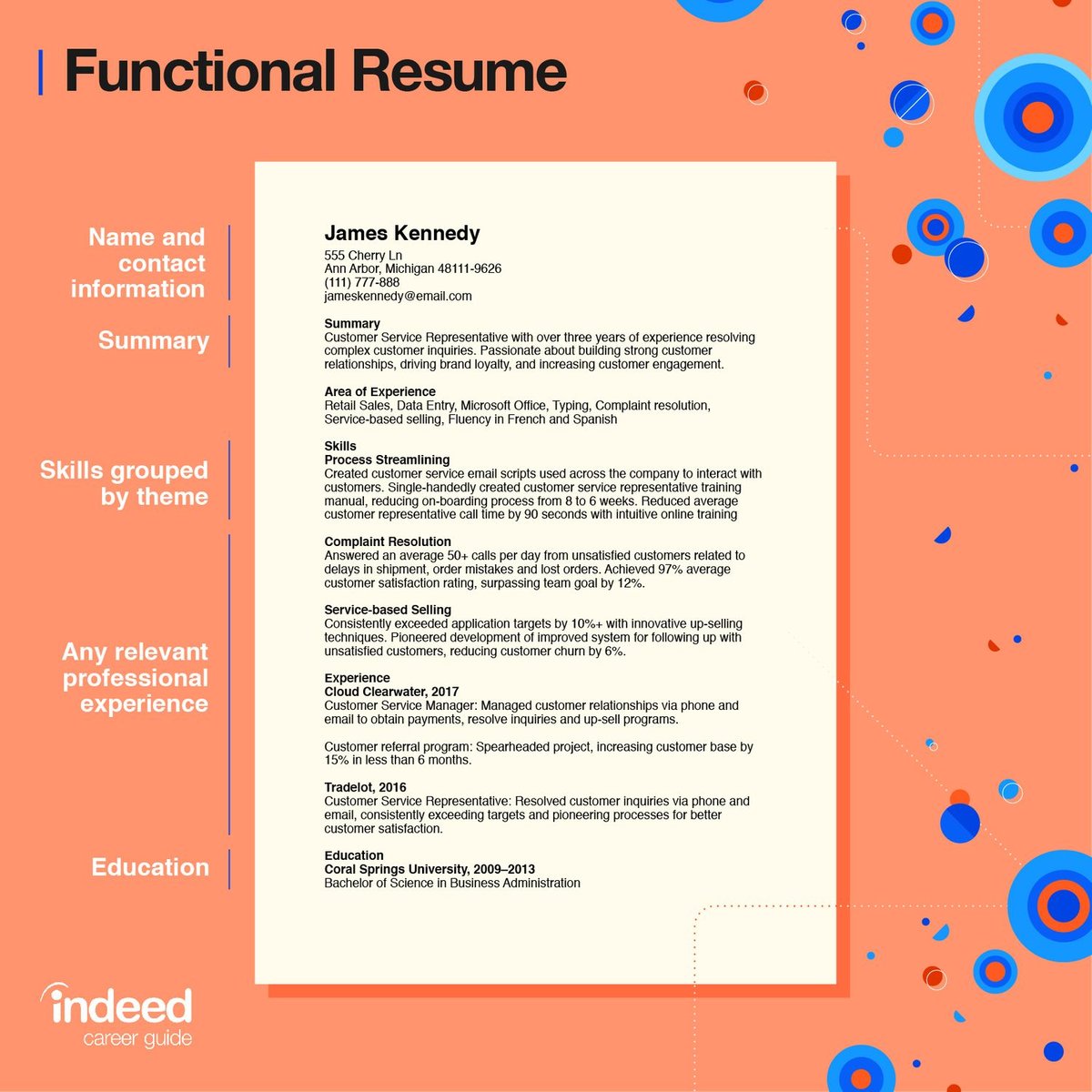Deciding what skills to acquire other than the commonly accepted ones in a position can be a challenge. After all, how can you make sure that the skills you’re training for will remain relevant in the next few years?
When you’re looking at career development in the tech field, the smartest way to accelerate your path is to work with a mentor. At MentorCruise, these mentors can help you locate resources, courses, or other information which can make you stand out in the hiring process. At the same time, they help you define your areas of expertise and what kind of career path could be right for you based on your interests.
In today’s highly competitive workplace as an employee, being a jack of all trades and a master of none is not the right path to success. So, the sooner you niche down by specializing in a specific industry whilst having a strategic mindset, the faster you’ll be on demand by attracting the right customers.
Finding your area of expertise means cultivating the right skills that’ll put you on demand. For example, if you aspire to be a copywriter, you might as well develop hard skills like keyword research and grammar or soft skills like good communication and creative thinking.
Knowing which areas of expertise are in demand can help you define those choices as well.
There are many ways to acquire expertise but you can sort these methods into two categories; functional expertise and accorded expertise. You can gain knowledge in any field and become an expert on the subject. Both types of methods are effective in their own way, so whichever one you choose really depends on your intentions.
Some occupations give more value to accorded expertise since it involves a notable organization recognizing your abilities. However, functional expertise proves you have personal, hands-on experience in the industry which can’t be replaced with accorded expertise.
Ultimately, depending on what job role you’re aiming for, it’s helpful to use both methods to expand your expertise.
There are different types of expertise that can can be acquired through the above methods:
Certifications and licenses are not technically types of expertise. They are instead proof of your technical skills which allow employers to trust in your expertise. There are certifications (both online and in-person) for a number of things such as coding, business, or medical-related fields.
In tech, there are certain industries and areas that are always in demand. You might want to center your areas of expertise around these topics in the next few years:
Just as programming languages can change or different skills become more vital over time, staying up to date on current trends is just as critical. This can be as simple as reading Forbes or TechCrunch or as more involved as interacting on LinkedIn and Twitter as you develop your areas of expertise while staying in touch with the tech community.
The way to learn more about a specific subject can be through classes and practice, but there are other things to keep in mind. Using a mentor or career coach can really help you define specific areas to zero in on. MentorCruise offers you the ability to work one-on-one with a mentor in your specific field.
When creating your resume, another thing to consider is that most companies use a form of AI to sort through them and look for important keys. Your resume may not even be looked at if it doesn’t have keywords that are deemed important. A mentor can help you with terminology or language that is used in the industry.
When writing your resume, you’ll want to focus on both hard skills and soft skills. The differences between the two are important to understand.
Hard skills are the ones that are for the job you’re applying to that are both directly relevant to the position and are teachable. That means you’ll have learned them from a mentor or from taking a class or experience through previous work. Hard skills can be measured through:
Soft skills, on the other hand, are skills that are transferable but are more related to how you relate to people and specific situations. It’s more about who you are vs. what you’ve been taught hands-on. Soft skills can be developed, but they are not natural to everybody.
Examples of soft skills:
Having both hard and soft skills within your resume is a great way to stand out against the competition. You need to highlight things like being a creative problem solver because it’s something that can be beneficial for the role.
Of course, these descriptors are rather vague, so make sure to elaborate on these soft skills and other unclear areas of expertise in your interview and cover letter through anecdotes on how these traits helped your team succeed. Consider using interview coaching services to get professional advice on how to best discuss your expertise in interviews.
When it comes to technology, it’s important to narrow your scope. To say you want to work in technology is like saying you want to be involved in music.
There are so many variables, categories, types, you name it, that when you dig into it, you realize without narrowing down to something specific or a niche area, the field is way too wide and open.

Zoning in on a specific area in the tech industry will help you effectively niche down and become known in your areas of expertise.
For example, here are five areas you might consider:
Are you focused on algorithms and circuits or more excited to work with visual concepts? By asking where you can see yourself fitting into an industry, you’ll be able to fine-tune your knowledge and build experience in those areas.
When it comes to career development, there are a lot of options in tech, and it can be downright confusing if you don’t have a clear idea of what you want.
You can learn about what different positions are responsible for, along with hearing about unique perspectives via a mentor. They offer an inside look at an industry you’re just getting started in.
Another thing worth pointing out is that the standard resume has changed over the years.
While in years past, it was common to see a list of responsibilities you handled, today’s resume is more about being solutions-based. Being able to provide examples is beneficial, such as stories on how you’ve surmounted a certain obstacle or something similar within the context of a team. You really need to position yourself within your areas of expertise and how you’ve helped the team through this specialization.
Speak with a career coach and have them go over your resume with you, so you can fine-tune it to best fit the industry of your career choice. If you’re unsure about how to approach this mentorship, here’s a list of questions to ask your career coach to get you started.
If you’re unsure of identifying your own specific areas of expertise, reflect on your previous experiences. What did your peers admire about your work? In what field did you excel? Here are a few ways to determine your field of expertise:
For example, you may have found some tasks much easier than others. Or, certain duties especially piqued your interest — it could be worth pursuing these areas further to deepen your expertise.
Determine which activities you were most passionate about or wish to pursue further. Hobbies help you develop and improve a lot of skills, so think about how your extracurricular activities translate into valuable skills in the workplace.
There are many reasons why you should include a list of areas of expertise on your resume:
Aside from your resume, you can also illustrate areas of expertise in your cover letter. Here, you’re able to go into a bit more detail with work-related examples that demonstrate your abilities.
Additionally, your portfolio is a great place to show off your areas of expertise. Simply compose a list of areas of expertise, skills, and abilities on a web page (on your portfolio website). These skills should be relevant to your portfolio work. For example, if you’re a programmer, list skills related to coding, software, computer engineering, and so on.
Make sure to format this list in a way that’s easy to read and don’t let it distract viewers from the main content of your portfolio. It’s best to list your skills on an ‘about you’ page away from your projects.
Expertise in resumes is showcased by skills and success stories. As mentioned before, being solution-oriented gives the impression of an expert. When crafting your skills section in your resume, you are presented with 2 options:
If you’re struggling with how to write expertise in resumes, start with a list of skills. When switching between industries or just entering the professional world, you might want to list your skills on the top of your resume. You’ll need to create a separate section where you’ll write down your key skills that correspond to the job description. Any professional or volunteer experience you might have should go in the description of each skill to enhance it. This type of resume is called functional.

When you have extensive professional experience to cite in your resume, you might want to list additional skills in a separate section at the bottom. This will help limit the length of your CV, given the fact that employers only devote 6 minutes on average to each resume. A small dedicated skill section could also work to your benefit to highlight relevant keywords that could rank you higher in Applicant Tracking Systems.
No matter what you decide to go with, we highly recommend always weaving your skills into your professional experience. Boost your chances of standing out of the competition by mentioning real-time examples or case studies where you showcased your expertise.
Okay! Now you know what area of expertise means in CVs and how to list your skills along with expertise examples. It’s time to share our valuable best practices on acing your resume and getting those interview calls:
With 1-on-1 mentorship, you have the opportunity to have your questions answered, your career guided, and your knowledge expanded. This gives you an edge up over the competition.
Imagine talking to a cybersecurity expert when you’re considering moving into this career path. The leg up and chance to cut your learning curve means you are light-years in front of those who haven’t invested in themselves in this manner.
Imagine getting the inside scoop on the best resources you never knew about or being part of a thriving community of like-minded professionals who can help grow your network. You can have important conversations about network security and anti-phishing with mentors who work in that industry.
And cybersecurity is just one example. MentorCruise has 1-on-1 mentors available for multiple technical areas of expertise that can finally give you the chance to make a bigger impact on your career. Invest in yourself with an affordable option that will skyrocket your career faster than you thought possible.
A mentor can help accelerate your career by:
It’s time to invest in your journey. If you want to get ahead faster, with better information, and with the help and guidance of an expert, MentorCruise is the place to be.
Find out if MentorCruise is a good fit for you – fast, free, and no pressure.
Tell us about your goals
See how mentorship compares to other options
Preview your first month
